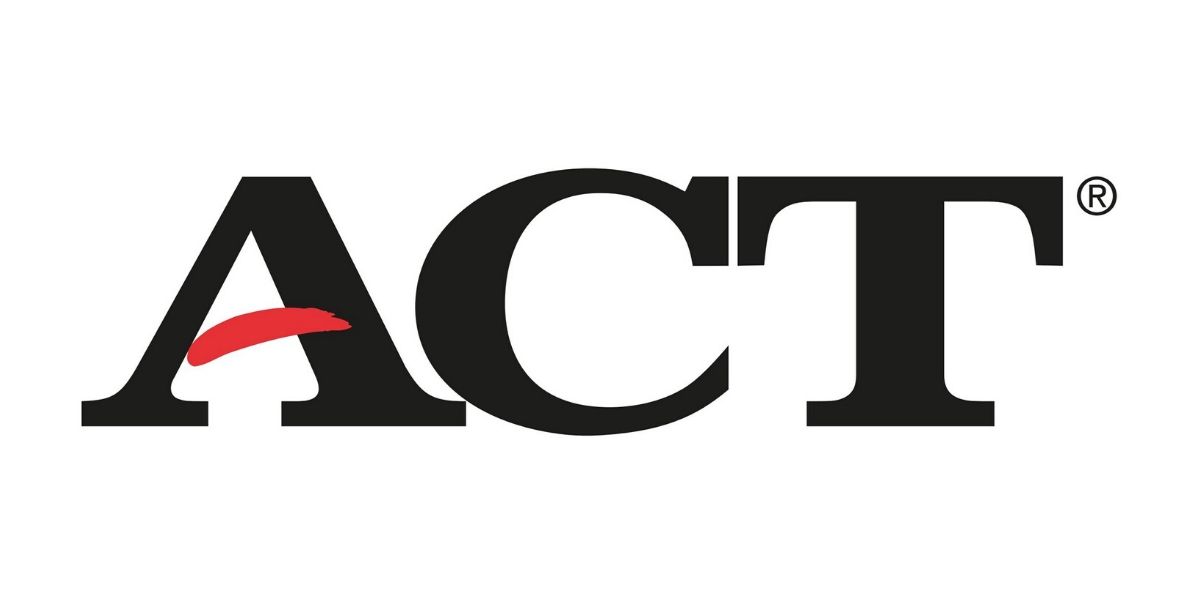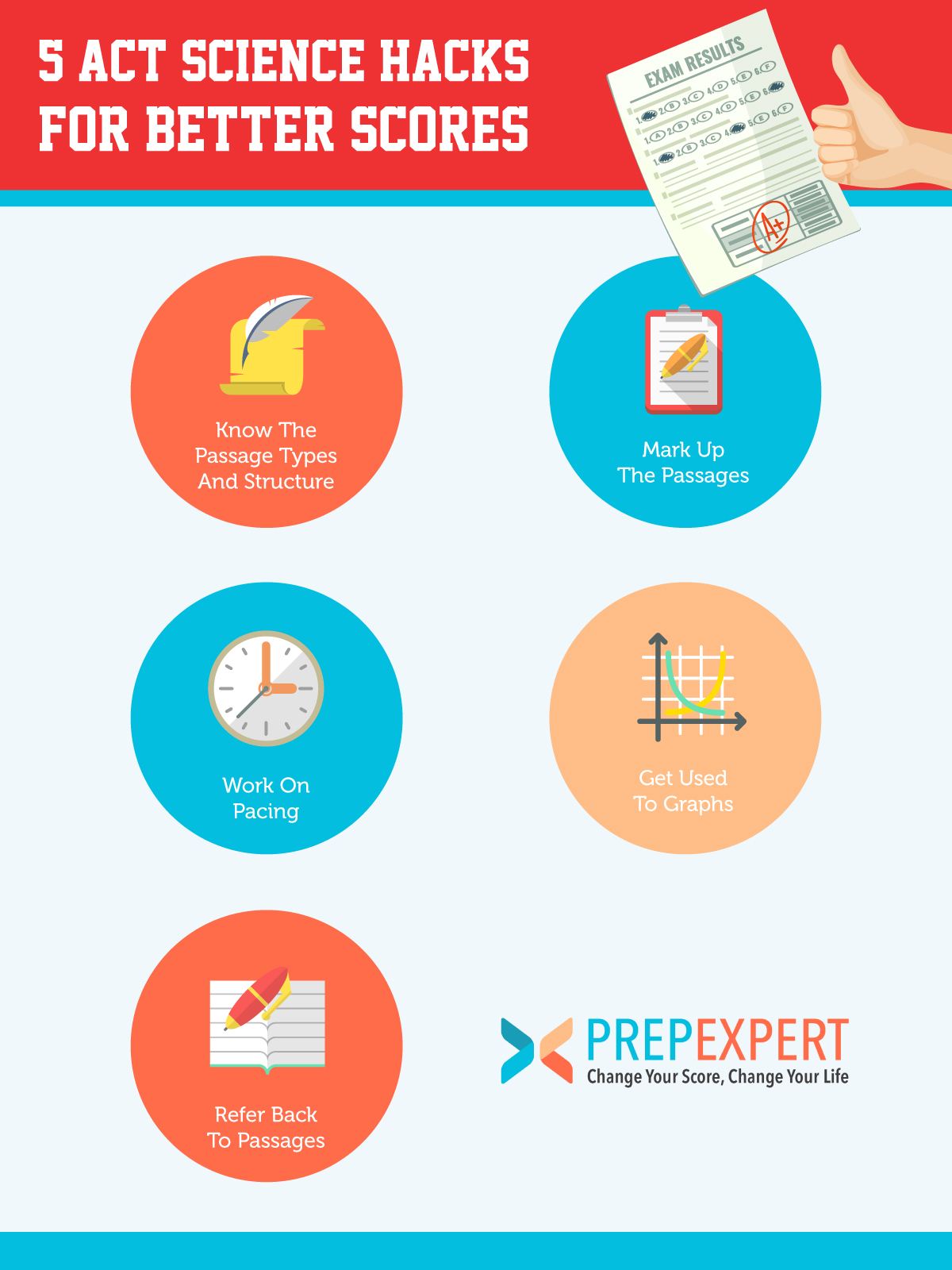5 ACT Science Hacks For Better Scores
The ACT Science section passages and required skills for success aren’t that scary…as long as you prepare and practice beforehand. As always, we have ACT Science hacks to make that practice easier.
Use these ACT Science hacks to better prepare for that section on test day itself.
Learn how to prepare for standardized tests with our year-round SAT prep and ACT prep courses today.
[act_one]
Know The Passage Types And Structure
The first step is knowing what the Science section is testing.
The ACT Science passages break down into three different types:
- Research Summary – They present a series of experiments,
- Data Representation – They present information about a specific topic,
- Conflicting Viewpoints – They present multiple theories about one single topic.
In terms of overall format, the Science section presents 6-7 total passages, each one containing 5-8 questions. You have 35 minutes to complete the entire section, so time management is critical for completion.
Mark Up The Passages
Don’t be afraid of note-taking in the test booklet.
Your test booklet is not a library book; you won’t be fined for leaving marks on it. Use it instead to notate the information you need. Common examples include:
- Underlining keywords
- Circling sentences
- Writing down notes in the booklet itself
All of this is fine because your completed Scantron sheet is what matters. This note-taking can serve two helpful purposes:
- Helping keep your brain focused
- Keeping you on pace
For example, notating similarities and differences between various experiments will save time by not having to constantly refer back to them.
Work On Pacing
Get your timing down well in advance.
Again, you’re only allotted 35 minutes to complete the Science section. That pace breaks down to approximately 5 minutes per passage to answer those corresponding 5-8 questions. In order to answer everything with tight timing, you have to build up a pace.
Start working on it at least a month in advance. For example, start with a smaller amount of passages with the time constraints. Start tackling 5 passages with a 7-minute time limit for answering. Go back and check your accuracy afterward.
The better your accuracy becomes, the more you can reduce your time allotment. Find the balance between speed and accuracy, because remember the answers have to be correct too.
[act_two]
Get Used To Graphs
Work on your graph interpretation ahead of time.
Data representation, in the form of graphs, charts, and other visual aids, are huge on the test. Approximately one-third of the entire Science test is comprised of Data Representation questions.
That means you need to be comfortable interpreting data from these aids and drawing conclusions. To help prepare, use practice tests with realistic examples and look over scientific publications. They present studies that are filled with graphs to illustrate their findings.
Work on your data interpretation by glancing over a graph and trying to determine trends quickly. Double-check the article to see if your interpretations are correct.
Refer Back To Passages
Don’t try to memorize everything on the first read.
You won’t be able to remember everything when reading the passages first-time out. There’s too much data and the pace won’t allow you to ponder. Instead, try the following:
- Read the passages to absorb the main points and familiarize with the data
- Quickly refer back to the passage for specific information when answering a question
Remember again that you can mark up your test booklet; don’t be afraid to circle or underline the main points in each passage. It’ll be easier to locate that information quickly and answer from there.
[act_three]
For more test strategy, college admissions, and scholarship application tips sign up for our FREE class happening right now!
ACT Science Hacks FAQ
What’s the first thing I can do to make things easier on Test Day?
Don’t be afraid of note-taking in the test booklet. Your test booklet is not a library book; you won’t be fined for leaving marks on it. Use it instead to notate the information you need like underlining keywords or circling sentences.
How can I work on my pacing for the Science section?
Start working on it at least a month in advance. For example, start with a smaller amount of passages with the time constraints. Start tackling 5 passages with a 7-minute time limit for answering. Go back and check your accuracy afterward. The better your accuracy becomes, the more you can reduce your time allotment.
How can I work on my graph interpretation?
To help prepare, use practice tests with realistic examples and look over scientific publications. They present studies that are filled with graphs to illustrate their findings. Work on your data interpretation by glancing over a graph and trying to determine trends quickly. Double-check the article to see if your interpretations are correct.
Do I have to memorize everything I read in a passage before answering questions?
There’s too much data and the pace won’t allow you to ponder. Instead, try the following – Read the passages to absorb the main points and familiarize with the data, Quickly refer back to the passage for specific information when answering a question.
Written by Todd Marcus
More from Todd Marcus

Taking The ACT Junior Year
If you're ambitious and want to give yourself plenty of time for score improvement, then consider taking the ACT junior…

ACT 2020 Score Release Dates
Here then are the ACT 2020 score release dates to plan around, as well as, the different kinds of available…

How To Determine Your Average SAT Study Time
If you want a high score on the SAT, then you need to put in the hours. There's no way…
